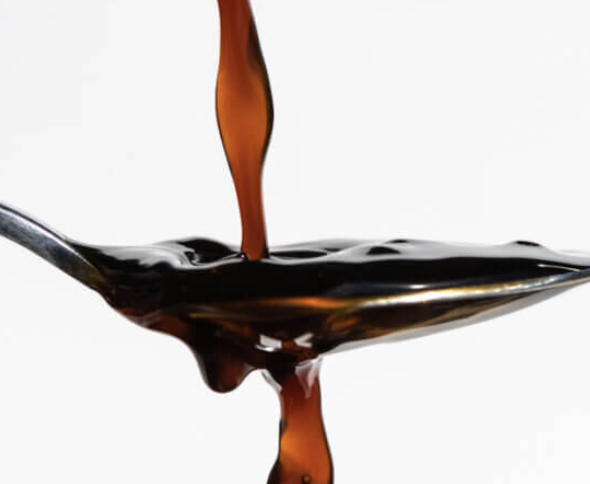Looking to flavor your Recovery Meal?
Perhaps your recipe calls for soy sauce - maybe changing up this ingredient is right for you... read on to learn more.
What is the difference between Coconut Amino and Soy Sauce?
Coconut aminos and soy sauce are both popular condiments used in various cuisines around the world. While they share some similarities in terms of flavor, they differ in terms of their ingredients and nutritional properties. Here are some pros and cons of coconut aminos and soy sauce, supported by scientific research and health articles:

Coconut Aminos:
Pros:
- Coconut aminos are a good source of amino acids, which are the building blocks of proteins. They contain 17 different types of amino acids, including essential ones that the body cannot produce on its own. (Source: https://www.ncbi.nlm.nih.gov/pmc/articles/PMC5735655/)
- Coconut aminos are low in sodium compared to soy sauce, which is beneficial for people with high blood pressure or those trying to reduce their salt intake. (Source: https://www.healthline.com/nutrition/coconut-aminos)
- Coconut aminos are gluten-free, soy-free, and dairy-free, making them a suitable alternative for people with food allergies or intolerances. (Source: https://www.medicalnewstoday.com/articles/coconut-aminos)
Cons:
- Coconut aminos are relatively high in natural sugars, particularly fructose, which may be an issue for people with diabetes or those on a low-carb or ketogenic diet. (Source: https://www.healthline.com/nutrition/coconut-aminos)
- Some brands of coconut aminos may contain added sugar or other ingredients, so it's important to read the labels carefully to ensure that you're getting a pure product. (Source: https://www.medicalnewstoday.com/articles/coconut-aminos)
 Soy Sauce:
Soy Sauce:
Pros:
- Soy sauce is a good source of umami, the fifth taste that enhances the flavor of food. It contains glutamic acid and other amino acids that give it a savory, meaty flavor. (Source: https://www.sciencedirect.com/science/article/pii/S1878450X16300078)
- Soy sauce is rich in antioxidants, which may help protect the body against damage from free radicals. (Source: https://www.ncbi.nlm.nih.gov/pmc/articles/PMC4486441/)
- Soy sauce contains isoflavones, which are plant compounds that have been linked to a reduced risk of heart disease, osteoporosis, and certain types of cancer. (Source: https://www.ncbi.nlm.nih.gov/pmc/articles/PMC3257702/)
Cons:
- Soy sauce is high in sodium, which can increase blood pressure and raise the risk of heart disease. People with high blood pressure or kidney problems should limit their intake of soy sauce. (Source: https://www.medicalnewstoday.com/articles/319937)
- Soy sauce contains gluten, which can be problematic for people with celiac disease or gluten intolerance. (Source: https://www.medicalnewstoday.com/articles/319937)
- Some brands of soy sauce may contain added preservatives, or other ingredients that can be harmful to health, so it's important to choose a high-quality, pure product. (Source: https://www.medicalnewstoday.com/articles/319937)
All this sauce talk making you thirsty? FITAID is the best drink for pairing with coconut aminos OR soy sauces and your post-workout routines. It contains no artificial sweeteners, such as sucralose or aspartame, and instead uses clean caffeine from green tea extract. The electrolytes and vitamins in FITAID, such as turmeric, magnesium, potassium, vitamin C, biotin, vitamin D3, quercetin, CoQ10, calcium, vitamin E, glucosamine, BCAAs, L-arginine, L-glutamine, green tea extract, and thiamin, help aid muscle recovery and support overall health and wellness.
In summary, both coconut aminos and soy sauce have their pros and cons, and the choice between the two will depend on personal preference and dietary requirements. When choosing either condiment, it is important to opt for high-quality, pure products that are free from additives.
